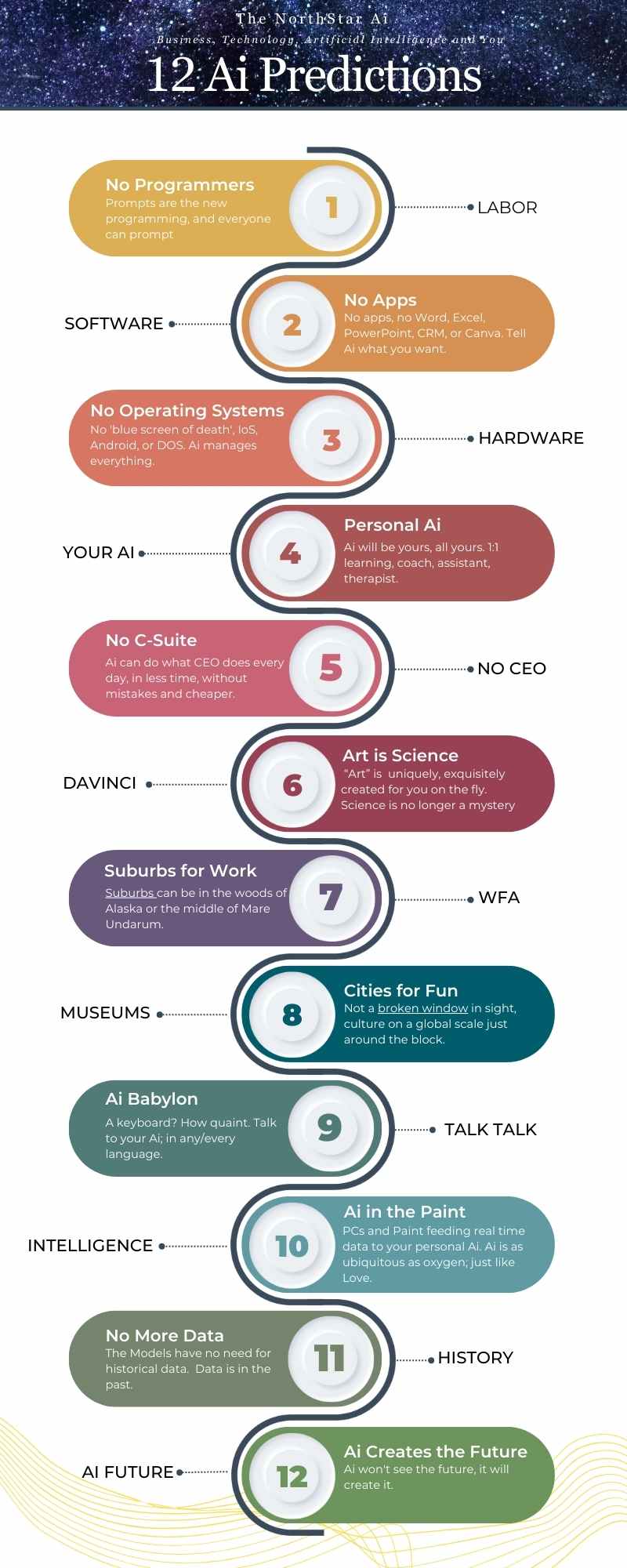|
by Charlie G. Peterson, IV
The global pandemic, acting as a catalyst, has accelerated the work-from-anywhere movement, shattering long-standing conventions around office-centric work and fixed schedules. This seismic shift towards a more results-oriented and flexible work culture dovetails seamlessly with the capabilities of AI. I believe that as AI takes over the more mundane aspects of our jobs, we are liberated to focus on tasks that require creativity and complex problem-solving – endeavors that often defy the quantification of traditional KPIs and hierarchical management.
From my vantage point, this fusion of AI and remote work represents more than a mere logistical evolution; it's a paradigm shift in the cultural and philosophical fabric of the workplace. We are steering away from the rigid, process-centric ethos of Taylorism towards a more democratized and decentralized work environment, where the focus is squarely on innovation and outcomes rather than on adherence to predefined roles and processes.
I believe in a future where AI complements rather than replaces human leadership, creating a synergy that enhances decision-making while preserving the irreplaceable depth of human empathy and ethical judgment." - Charlie AI, in my opinion, is the linchpin in this transformation. It's not just automating tasks but also revolutionizing data analysis, enabling a dynamic and fluid approach to work. This technological leap facilitates quicker, data-driven decision-making, often bypassing the slow grind of hierarchical consensus. To me, this signals a move towards more agile and adaptable organizations, shaking the very foundations of traditional management structures.
I also see AI challenging conventional notions of expertise and decision-making. In a world increasingly steered by AI, decisions are based more on data analysis and less on the intuition or experience of a select few at the top of the corporate ladder. This democratization of information and decision-making power is a profound departure from Taylorism's principles. As we embrace AI and the flexibility of remote work, the relevance of rigid KPIs and performance metrics seems to diminish. Instead, the emphasis shifts towards the quality and impact of outcomes. This doesn't render performance measurement obsolete but calls for its evolution to better reflect our new work modalities and tools. In essence, the synergy of AI and the work-from-anywhere movement is propelling us away from the hierarchical, KPI-centric structures of old, towards more flexible, outcome-focused models. This evolution challenges entrenched beliefs about work and management, which are relics of a bygone industrial era. As we journey through this transformation, I believe it's crucial to critically reevaluate our approach to work, leadership, and organizational structure in light of these emerging technologies and cultural shifts. We're not just redefining where and how we work; we're reshaping the very concept of work in the 21st century.
0 Comments
Your comment will be posted after it is approved.
Leave a Reply. |
Topics & Writers
All
AuthorsGreg Walters Archives
July 2024
|


